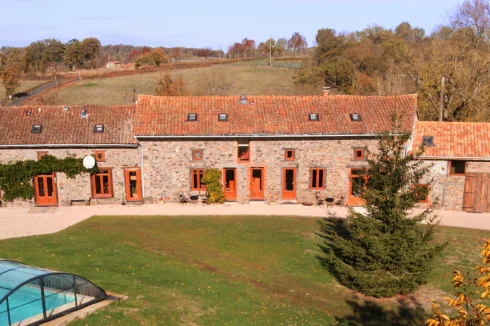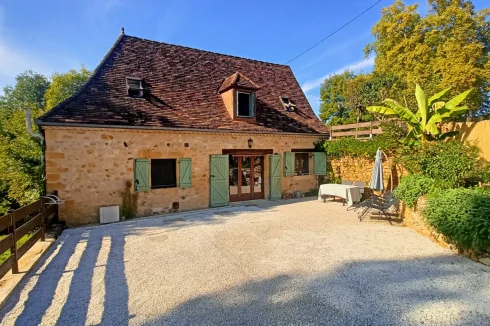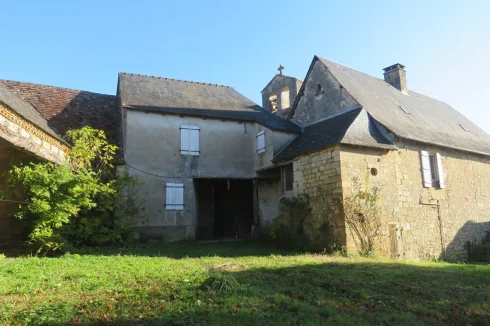Wind Farms in France
Tuesday 08 August 2017
The French government have an ambitious national wind farm programme, but one that is hotly contested.
There are now over 1500 wind farm installations in France, with a power capacity of over 12GW, providing the country with 5% of its electricity needs.
Many more will be coming on stream over the next few years; a further 700 land based schemes are in progress, with a capacity of over 8GW. Some 11 sea based installations are also at the planning stage, which will provide 3GW of capacity.
The plans are that by 2018 there will be 15GW total capacity, rising to between 21GW and 26GW by 2023.
The new Environment Minister Nicholas Hulot has yet to pronounce substantially on the issue, and whether these plans will change, but in a landmark speech in July he announced plans to shut 17 nuclear power stations by 2025, depriving the country of 15GW of power, which will need to be replaced. There is considerable doubt that such an ambitious target will be realised.
As can be seen from the following table, most of the current wind farm installations are located in the north and north east of the country, in the regions of Hauts-de-France and the Grand Est, due primarily to climatic and topographical factors. Between them they account for 47% of the total national capacity.
| Wind Farms | ||
| Region | No of Installations | Capacity in MW |
| Auvergne-Rhône-Alpes | 96 | 447 |
| Bourgogne-Franche-Comté | 60 | 558 |
| Brittany | 158 | 993 |
| Centre-Val de Loire | 93 | 956 |
| Corsica | 3 | 18 |
| Grand Est | 306 | 2,894 |
| Hauts-de-France | 315 | 2,828 |
| Île-de-France | 7 | 55 |
| Normandy | 103 | 643 |
| Nouvelle-Aquitaine | 92 | 737 |
| Occitanie | 158 | 1,223 |
| Pays de la Loire | 118 | 749 |
| Provence-Alpes-Côte d'Azur | 18 | 50 |
| Total France Met | 1527 | 12,057 |
The graphic below shows the distribution of capacity overlaid on a departmental administrative map.
The department that has been most affected is the Somme in Hauts-de-France, which has a turbine capacity of 1130 MW, followed by Marne (Grand Est), where the capacity is 814 MW, and Pas-de-Calais (757MW).
Other departments with over 300MW capacity are Aube (677MW), Aisne (553MW), Eure-et-Loir (459MW), Meuse (389MW), Aude (384MW), Loire-Atlantique (337MW) and Moribhan (326MW).
By contrast, a significant number of departments in the South-West and South-East have no wind farms whatsoever. The figures in the graphic refer to the MW capacity, with a maximum of 1130MW and a medium of 145MW.

Source : SDES d'après Enedis, RTE, EDF-SEI, CRE et les principales ELD
Opposition
Although polls regularly suggest a substantial majority of the French support the programme, there is frequently very strong opposition when residents learn that a promoter is planning to install turbines nearby.
The only supporters often seem to be the farmers who own the land, who might expect to receive between €5,000 and €15,000 a year in rental for a turbine. Local councils also benefit from increased tax revenues, so they can also be tempted.
Around 60% of proposed new installations face a legal challenge and the timescale between plan submission and installation is between six and nine years. A large number of court decisions have gone against the promoters, often due to a failure of procedure.
Not surprisingly, most opposition is due to the potentially negative impact on the value of property, although as this cannot be used as a defence in court, the grounds for opposition most frequently used are protection of the environment or of historically important buildings.
Others contest the noise nuisance impact of the machines, as well as the detrimental impact on the health of those who live nearby.
Health campaigners have been substantially assisted recently by a report from the Académie de médecine published in May, which considered that the noise and visual impact detrimentally affected the quality of life of those nearby. They judged that the intermittent and random character of the noise generated by the turbines could perturb the psychological state of those exposed to it.
The authors recommended a review of the minimal distance from residential property in relation to the height of the turbines, but stopped short of giving detailed advice. The current minimal distance is 500 metres, irrespective of the height of the turbines or the local topography.
More radical groups also challenge what they perceive as the false prospectus of wind power, which is regarded as unstable and costly. To ensure the profitability of the installations EDF have been obliged to buy electricity at substantially inflated prices, which the consumer has in turn been required to pay for by an additional public service charge, called the Contribution au service public de l’électricité (CSPE), on their electricity bill. According to the French national auditor, the Cour de Comptes, the cost of this subsidy will reach around €40 million by 2020, the vast majority of which goes towards wind farm development.
Local mayors have also often been in the firing line for a conflict of interest in the promotion of local schemes. In 2014 a report of the Service central de prévention de la corruption (SCPC) denounced the scale of corruption involving wind farms as a "un phénomène d’ampleur and une dérive grave". No less than seven mayors have been implicated in corruption scandals involving new schemes, and there is anecdotal evidence that the level of corruption has been far more widespread.
Such was the growing concern about the improper conduct of some mayors that new legislation was passed in 2016 imposing more severe conduct requirements.
Successive changes to the planning process have also effectively removed local councils decision-making power over the installation of new turbines, which are now subject to a distinct 'streamlined' approval process outside of the usual land planning system. Ultimately, it is now the local prefet who makes the decision.
Property Purchase Process
In general, the risks associated with buying a property and later landing up with a wind farm nearby remain low, and even if it should occur it is by no means self-evident that it will be a nuisance. Interestingly, polls show that most property owners who live near a wind farm have a positive view about the installation.
However, for those for whom it may be a concern it is clearly important to do some homework as part of the purchase process.
They have been helped in recent years by the formal disclosure requirements that are necessary, although this process does sometimes breakdown, as a number of court cases have demonstrated.
In the one case, a court of appeal decided that a failure by the seller to disclose information about a local wind farm project enabled the buyers to withdraw from the sale.
Although in its early stages the project consisted of eight wind turbines located approximately 1km from the property. The buyers were a couple who had purchased a property in a rural location which they wished to use as a chambre d'hôte business.
The seller was aware of the buyers intentions and the necessity for the property to be located in a calm and protected environment. They also knew of the wind farm project as a result of extensive local publicity and a campaign to oppose the plan. Indeed, three witnesses testified that the seller had actually participated in the campaign.
The court ruled that the sale should be annulled and the seller reimbursed the sum of €223,000, which included around €10,000 in notaire fees and stamp duty costs.
In a second case the court of appeal considered the case of a couple who had signed a sale contract for the purchase of a restored property in Tigné, in the department of Maine-et-Loire.
A little later the buyers learned of a wind farm project approximately 1km from the property. The project was one about which the seller would have been aware, as they were a local councillor.
In the light of this new information the buyers sought a reduction of 10% in the purchase price from the seller, who refused their request. He argued that the nuisance from the wind farm would not be significant, and, in any event, there was no certainty that the project would proceed.
The court of appeal judged that there was a potential for noise nuisance and that the implantation of such large structures within the site line of their property did create an important change to the environment that might not be acceptable to the buyers.
Accordingly, the buyers were granted the 10% reduction in price that they sought, together with the opportunity to withdraw from the sale if they so wished.
Last June we also reported on a notaire who failed to disclose a wind-farm development to the buyer.
As a result, if it is a concern, you need to make sure you formally request and record an exchange of information with both the seller and the notaire on any development plans in the locality. You should specifically and formally request of the notaire that wind farm plans form part of their search enquiries. One thing to be careful of here is that the search made by the notaire may only extend to the commune in which the property is located, so this point needs clarifying with them.
The website of the prefecture may well be a useful source of information.
Those who have the time and inclination to do so might also want to consult the regional plans, called the Schéma Régional Eolien, which are prepared by the regional councils and prefets. However, these plans are broadly based and few have been approved. A number have also faced successful legal challenges, such as in Brittany and Burgundy.
It also may be that no-one can be blamed for withholding information due to the formative stage of a project, when discussions with landowners may be taking place in private. In such circumstances the best sources may well be local residents or an informal approach to the local mayor.
Thank you for showing an interest in our News section.
Our News section is no longer being published although our catalogue of articles remains in place.
If you found our News useful, please have a look at France Insider, our subscription based News service with in-depth analysis, or our authoritative Guides to France.
If you require advice and assistance with the purchase of French property and moving to France, then take a look at the France Insider Property Clinic.





